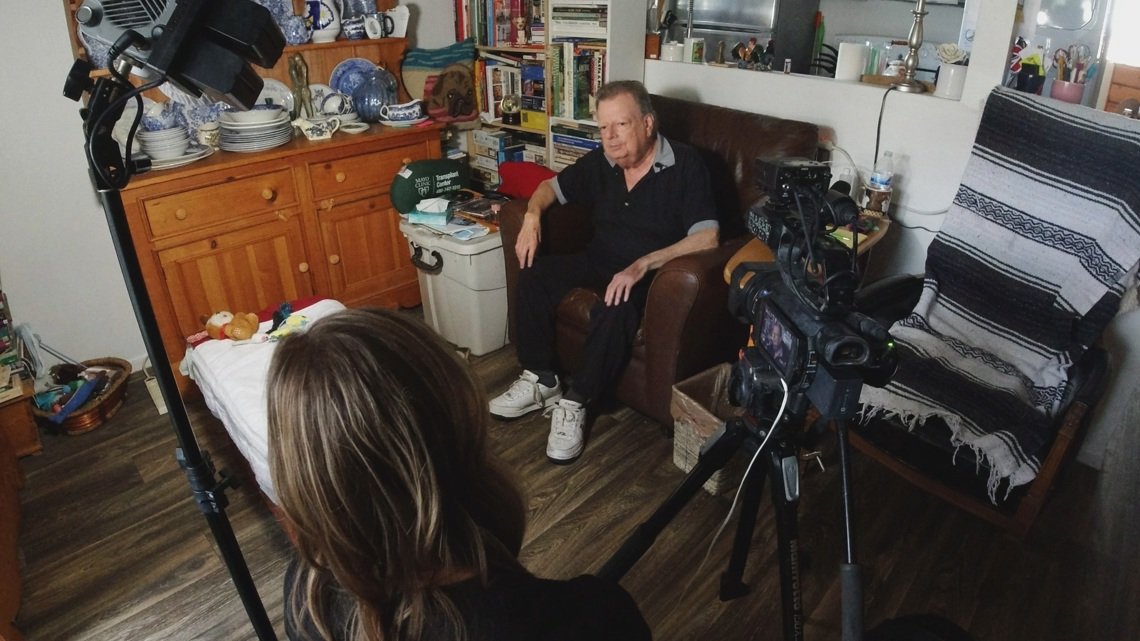arizona
After Kidney Transplant, Arizona’s Food Benefits Leave Man Struggling with Just $23 a Month

After relocating to the Valley for a kidney transplant, Sid Levin finds himself grappling not only with his health but also with the Arizona Department of Economic Security’s (DES) policies. Despite the support from his former client, who helped them settle in, Levin now faces a punishing reality: he is authorized just $23 a month for food assistance.
Levin’s journey has intertwined medical challenges with bureaucratic obstacles. “It’s been much harder with the DES than anything medical I’ve gone through,” he remarked. The Lincolns, reliant on Social Security for financial support, sought out Supplemental Nutrition Assistance Program (SNAP) benefits, which proved to be a daunting process.
During one visit to the local DES office, Levin and his wife waited for over an hour, only to be sent home with forms that would later be lost in the system. After multiple attempts, they were finally granted an evaluation, only to be stunned by the result. “We can give you $23 for the month,” the response from DES confirmed. Levin’s shock was palpable. “I said, ‘Excuse me? For two people to live on? $23?'”
The minimum benefit, according to DES, was tied to the financial assistance Levin receives from Dalager, which inadvertently limits their eligibility for additional aid. “My answer to that was, ‘Well that’ll get you a meal at Chick-fil-A and that’s it,” Dalager lamented.
Dalager, who continues to provide essential support, expressed his frustration with the system’s limitations. “It’s unfortunate that I would have to abandon them, basically, in order for their monthly stipend to increase,” he noted, highlighting the precarious situation their assistance creates. “Because by potentially abandoning them and not covering certain expenses, they end up homeless.”
A DES spokesperson commented on the matter, stating that the agency adheres strictly to federal and state laws governing SNAP benefits. Brett Bezio emphasized that benefits are calculated based on household income and expenses. However, Levin contends that the scoring system is flawed. “Just because somebody helps you, it eliminates your ability to get any assistance? That’s not right,” he asserted.
The average benefit for a two-person household is reported to be $372, illustrating the stark disparity between what Levin receives and what is typically allocated. “The purpose of DES is honorable, just maybe, if the higher-ups can get together and solve this sort of dead end that we’ve run into, that would be greatly appreciated,” Dalager added.
Currently, Levin is navigating the appeal process with DES in hopes of improving his situation. “Hopefully I’ll bounce back, and I won’t need any help from anybody because I never did,” Levin reflected, emphasizing a desire for self-sufficiency at 66 years old.
This case underscores ongoing discussions regarding the effectiveness of assistance programs and the implications for those who rely on them.













![Maricopa City Council member AnnaMarie Knorr sits at the dais during a Jan. 21, 2025, meeting at Maricopa City Hall. On top: Sketches of the proposed Maricopa Towne Center, which advanced Tuesday. [Monica D. Spencer]](https://arizonanews.org/wp-content/uploads/2025/06/City-Council-Greenlights-Ambitious-184-Acre-Vestar-Shopping-Center-Rezoning-80x80.jpg)



